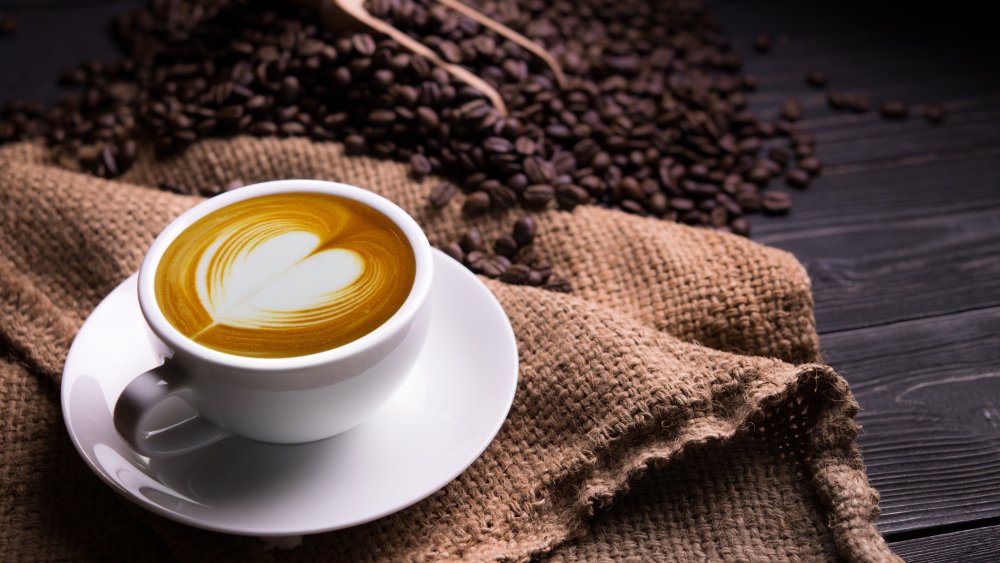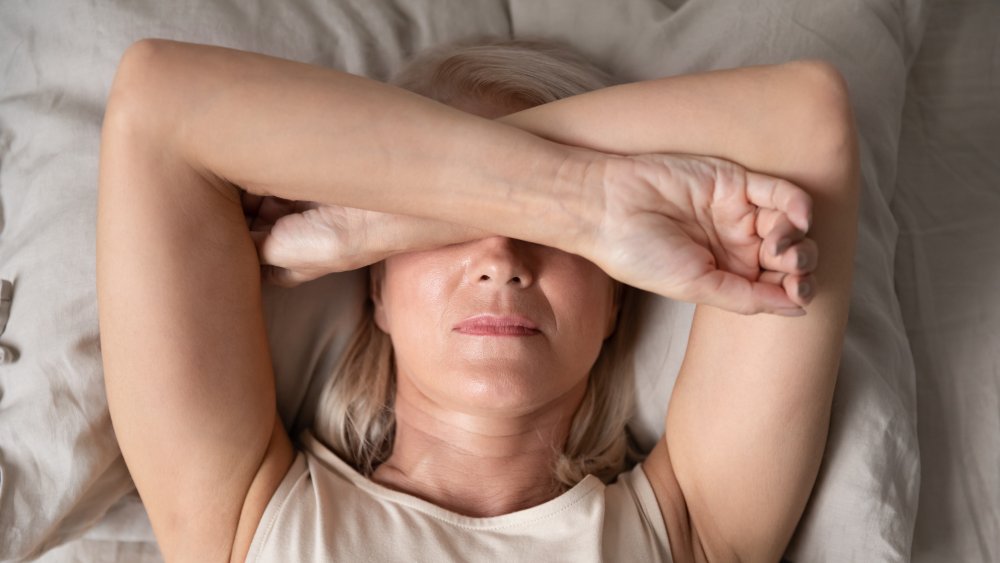Here's What Really Happens When You Skip Your Morning Coffee
Caffeine is the chemical in coffee that makes you feel awake and energized — and sometimes jittery and anxious. Caffeine has these effects because it stimulates your nervous system. When you drink your morning coffee, the caffeine enters your bloodstream through your digestive system and heads for your brain where it releases serotonin and dopamine, the feel-good hormones (via a 2010 review published in the Journal of Food Science). This whole process takes about an hour, which is why you may not feel the effects of your morning cup of coffee immediately.
The half-life of caffeine (the amount of time it takes to reduce the caffeine in your system to 50 percent) is about five or six hours, but that does vary per person. This explains why, if you drink your first cup of coffee at 7 in the morning, you feel like you need another cup somewhere between noon and three in the afternoon. You're working with half of the caffeine you had on board after you drank your first cup, and you might be starting to feel tired.
Skipping your morning coffee can result in caffeine withdrawal
Skipping your morning cup of coffee isn't just a break in your routine. The caffeine in coffee is a drug, and you're going to feel some withdrawal symptoms. Passing up your morning cup of coffee will result in some or all the following symptoms of caffeine withdrawal: headache, fatigue, trouble concentrating, as well as flu-like muscle pain and nausea (via Cleveland Clinic). The more caffeine you are used to having, the more severe your symptoms will be. The symptoms will start affecting you from 12 to 24 hours after you've had your last cup of coffee, and they can last from two to nine days.
The best way to quit caffeine is to do so slowly — wean off of it. If you have three cups of coffee a day, start drinking two, then one, then half a cup, then none. Remember that there is also caffeine is some sodas, teas, and chocolate, so be careful. Another way to wean off of it is by switching some cups of coffee to decaf, which has less caffeine than regular coffee. If you drink three cups a day, start with one decaf and two regulars. Slowly taper off of caffeine over two to three weeks for the best results.


